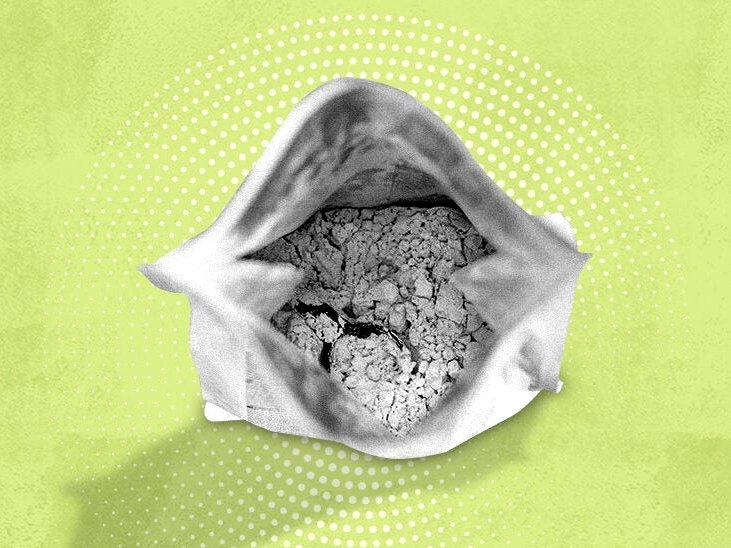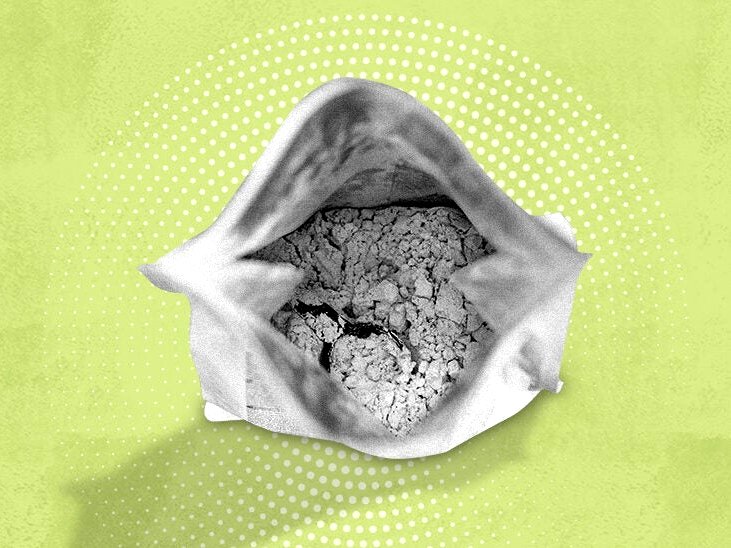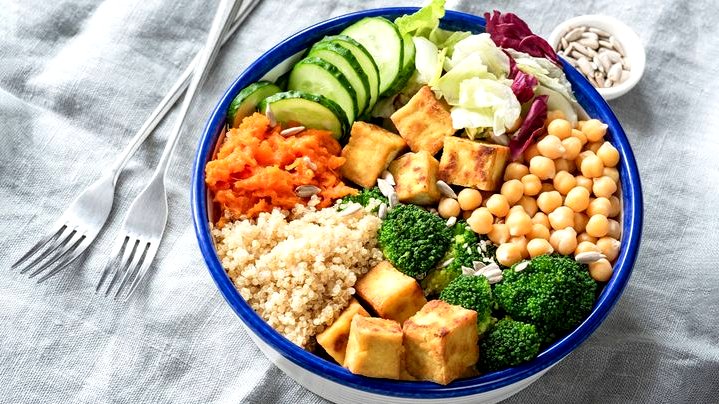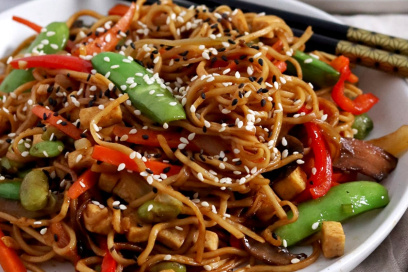As vegans ourselves, we welcome you to our blog that strives to provide information that may assist fellow connoisseurs lead an enriching and healthy life. A key issue among vegans is sourcing enough proteins in their plant-based diet. Omnivorous diets rely heavily on animal products as the source of protein, while vegans avoid such sources entirely. But do not fear, as we are about to reveal an array of delectable plant-based protein options with greater nutritional impact and additional advantages than their animal-based alternatives. Here, we want to celebrate and spread awareness about vegan sources offering at least 10g of protein per serving. Further, we shall explore the many health advantages associated with adopting plant-based protein sources and provide tips for including them into daily meals. If you're an enthusiastic vegan looking for significant protein sources, take this chance to immerse yourself in our carefully curated top ten plant-based proteins!
I. Top Vegan Foods with 10g of Protein or More
Vegans may find getting enough protein a difficult feat, but don't despair: plant-based proteins offer plenty of solutions that meet both nutrient needs and taste preferences. Here is our top ten vegan protein sources offering at least 10g per serving!
1. Lentils
Lentils are compact yet powerful legumes, packed with not only an incredible protein punch but also plenty of essential fiber, folate, iron and other vital vitamins and minerals. A cooked cup of lentils boasts 18g of protein - an incredible resource to incorporate into your salads, soups and stews for an additional protein boost!
2. Chickpeas
Chickpeas are a delicious staple legume that add a burst of versatility to many dishes from hummus to curries. Each cooked cup of chickpeas provides 14.5g of protein while also providing fiber and other important nutrients.
3. Black Beans
Hailing from Mexico and South America, black beans are an abundant source of protein with approximately 15g per cooked cup. Known as an indulgence and flavor booster in food preparations, they also boast substantial amounts of fiber, iron and other vital nutrients essential to health.
4. Tempeh:
Originating in Indonesia, Tempeh offers approximately 16 grams of protein per cup when prepared properly and its unconventional delivery makes it an outstanding vegan source of protein. Used in numerous dishes like stir fries and sandwiches alike, you're likely to find this pungent block at health food stores near you.
5. Tofu
Tofu, a popular soy product, has long been considered a cornerstone of vegan dining. One half cup of raw tofu typically provides around 10g of protein; its versatility means it can be added into recipes such as stir fries and smoothies alike.
6. Quinoa
Quinoa is an excellent complete protein source, meaning that one cooked cup provides roughly 8g of protein as well as essential minerals such as magnesium and phosphorus. Quinoa's unique texture and taste make it a sought-after ingredient in dishes like salads and grain bowls.
7. Oats
Oats have long been an indispensable breakfast food that has found its way into various baked goods and dishes. One cooked cup of oats provides 6g of protein as well as necessary fiber, iron and other nutrients - ideal for porridge or no-bake energy ball recipes!
8. Seitan
Seitan is a delicious vegan protein source often used as a meat alternative, consisting of wheat gluten. One 100g serving provides approximately 21g of protein; its versatility means it is appropriate in dishes from stews to sandwiches.
9. Edamame
Edamame is a delicious Japanese snack that has recently gained global acclaim. Each cooked cup boasts 17g of protein for maximum nutrition and flavorful appeal - ideal as an appetizer or starter dish! It is evident why Edamame has become such a sensational food trend!
10. Hemp Seeds
Hemp seeds are an ideal vegan protein source, providing roughly 10g per two tablespoons. In addition, hemp seeds contain both omega-3 and omega-6 fatty acids for added nutrients and flavor in salads, smoothies and other recipes.
Integrating superior vegan protein sources into your diet not only meets your daily protein requirement but also adds essential vitamins to your body. Furthermore, including different vegan protein sources in your daily routine adds variety while adhering to veganism.
II. Top Vegan Foods with 10g of Protein or More
When it comes to nutrition, plant-based protein sources cannot be overemphasized as one of the greatest assets for good health. Beyond helping reduce chronic ailments such as cardiovascular disease, cancer and type 2 diabetes risk, plant-based proteins offer other distinct advantages that cannot be obtained through animal sources alone. Let us now examine some of these striking merits of adopting a plant-rich diet:
1. Plant-Based Protein Sources Provide Vital Nutrients
Plant-based proteins provide an abundance of vital nutrients essential for good health, such as fiber, vitamins, minerals and phytonutrients. Studies have proven their value for supporting digestion processes, supporting skin health, overall wellbeing and more.
2. Anti-Inflammatory Properties
Certain plant-based proteins like quinoa and lentils possess bioactive compounds with anti-inflammatory properties, making them potentially helpful in mitigating chronic conditions like inflammation. Including anti-inflammatory foods into one's diet could potentially reduce risks associated with such conditions and their spread.
3. Lower Saturated Fat Content
Animal-derived protein sources tend to have higher saturated fat contents compared to plant-based sources, which could potentially have detrimental effects on heart health in large quantities. A diet rich in saturated fat has been linked with increasing one's risk of heart disease; by supplementing their diet with plant-based sources instead, however, they could potentially lower such risks.
4. Easily Digestible
Plant-based protein sources tend to be easier for digestion than animal-derived ones, partially due to their more alkaline nature and increased acidity of animal sources; neutralizing acid levels increases immune response while decreasing inflammation levels and vice versa.
Overall, adopting a diet rich in plant-based proteins offers significant health and mental wellness advantages. One can easily meet their daily protein requirements while simultaneously receiving essential vitamins and nutrients for total body wellbeing.
Check out Eat This for top vegan protein sources!III. Benefits of Plant-Based Protein Sources
When trying to incorporate plant-based proteins into your meals, it can seem daunting at first. Don't panic though! This is just an illusion - adding plant-based protein sources is much simpler than you may realize! Here are some helpful tips for adding them into meals:
1. Salad Supplementation
>Adding legumes to your salad is an easy and delicious way to increase protein and fiber consumption. Chickpeas work particularly well when added to Mediterranean-themed salads while black beans would fit right in with Mexican flavors.
2. Meaty Mimicry
>If you want the taste of meat without actually eating it, plant-based proteins like seitan and tofu offer plant-based solutions with similar properties as meat that can serve as delicious replacements in dishes like stir-fries and sandwiches.
3. Grain Games
>When it comes to plant-based proteins, grains like quinoa, farro and barley are essential in your recipe arsenal. As powerful plant sources they make delicious dishes from salads to grain bowls!
4. Nutistic Nibbling
>Nuts and seeds provide a nutritious source of protein and healthy fats that will satisfy even your most ravenous stomachs. Satiate hunger quickly by snacking on almonds, pumpkin seeds, or sunflower seeds to get that quick protein fix!
5. Breakfast Bonanza
>Starting your day right is key to feeling energized and full before lunchtime arrives. Oatmeal can make an ideal protein-rich start for the day and can even be enhanced by topping with nuts or seeds for even more protein content. Be adventurous! Try mixing in some tofu into a breakfast scramble, or making a vegan smoothie using hemp seeds or peanut butter as something new and different.
Remember, experimentation is key when adding plant-based protein sources into your meals. Don't shy away from unconventional combinations - pairing these sources with complementary foods can increase nutrition and flavor! For example, beans combined with brown rice or quinoa provides a complete protein source, while tofu with stir-fried vegetables provides an satisfying meal that keeps you satiated for hours! It is best to explore various ingredients until you discover which works best for you!
Learn more at chhs.colostate.edu.IV. "How to Incorporate Plant-Based Protein Sources into Meals"
One of the persistent misconceptions surrounding veganism is that it is difficult to obtain sufficient amounts of protein. But this assertion is untrue, since getting adequate proteins from vegan sources is both feasible and can yield many additional advantages over animal sources of protein.
As noted by the Academy of Nutrition and Dietetics, individuals following a vegan diet can easily meet their daily protein requirements by incorporating plant-based sources. Adults should consume 0.8 grams for every kilogram they weigh each day - thus someone weighing 68 kilograms would require around 55 grams in 24 hours.
Vegan diets may meet protein needs; however, it is also necessary to consider an individual's lifestyle and activity level when planning protein consumption. Athletes or those leading an active lifestyle may require additional protein intake in order to facilitate muscle repair and increase strength.
To ascertain individual protein needs, vegans can utilize the Harris-Benedict equation to take into account multiple factors like age, weight, height, and activity level. With this calculation technique in hand, they can ensure they're getting enough protein to meet their lifestyle and health aspirations needs.
Plant-Based Sources of Protein
One way of meeting daily protein requirements is incorporating plant-based sources like lentils, quinoa, and nuts into meals and snacks. Veganism enthusiasts can easily meet their protein requirements through eating such plants as these throughout their day.
- Lentils
- Quinoa
- Nuts
Benefits of a Carefully Designed Vegan Diet
Overall, it has been established that veganism can meet an individual's daily protein requirements in abundance. Indeed, following a carefully designed vegan diet can bring many health-related advantages, including improved digestion and decreased inflammation as well as decreased susceptibility to chronic illnesses.
Culinary Experiences
By enjoying appetizing meals filled with plant-based proteins like nuts and legumes that meet daily protein needs while simultaneously offering delicious culinary experiences, vegan fans can meet their protein requirements without compromise!
Integrating Vegan Proteins Into Your Diet
Integrating vegan proteins into your diet is a smart step toward improving both your health and wellbeing. Not only do vegan proteins contain all of the essential amino acids your body requires for proper functioning, they're also tasty additions that make meal planning simpler; from lentil soup and creamy hummus dip to crispy tempeh stir-fries there are endless possibilities when it comes to choosing vegan protein sources!
Vegans now enjoy greater access to protein-rich foods that meet all their tastes and dietary preferences, making it easier than ever before to meet your protein requirements without compromising taste, texture or nutrition. Studies show that an adequately planned vegan diet can meet protein needs just as effectively and help achieve optimal health results as any meat-based diet plan.
Why wait? Take the leap into vegan protein today and discover just how easy and delectable adding plant-based goodies into your daily life can be - both your taste buds and body will thank you for it!




